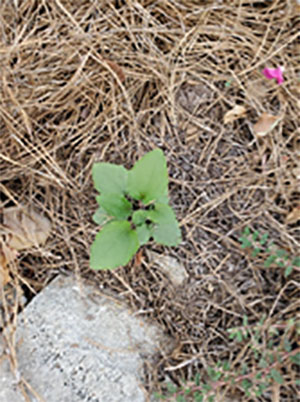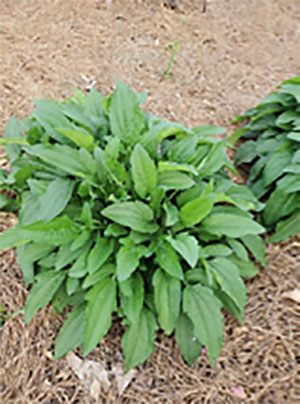Ask Master Gardener Volunteer
Michele Hackmeyer
Recently I wrote about Firebush, Hamelia patens, a great summer shrub. Today, it’s Brown-eyed Susan, Rudbeckia triloba, a tough summer flowering plant with a profusion of sunny yellow blooms.
Many more blooms
This plant is different from the Black-eyed Susan, Rudbeckia hirta, in that it has many more blooms of smaller flowers that usually have fewer rays per flowerhead.
Native to North America
It’s native to North America and is described as an herbaceous perennial (dies back in winter) that is hardy in Zones 4 – 8. Wakulla County is USDA Zone 8b and 9a along the coast. The R. triloba (and R. hirta as well) loves full sun, defined as at least 6 hours of direct sun and does very well in my yard with 10+ hours per day. It is heat and drought tolerant, however does best with regular watering. It is somewhat resistant to deer and has no serious pest or disease problems.
 Native, NOT invasive
Native, NOT invasive
This is an enthusiastic reseeding plant! Since it’s native, it’s not defined as invasive, but I would strongly encourage very active management of the seedlings when they appear in the spring.
Attractive clump
As you can see from this photo, I did not eliminate enough plants that came up and they’ve taken over this bed. They start out so small and develop into an attractive clump. Then they really take off! They transplant easily, so dig up the extra, put them in pots and share them with your friends and neighbors and be sure to let them know there is a no return policy.
Young seedling and developing plant.
If you have questions about this or any other plant, the UF/IFAS Extension Wakulla County Master Gardener Volunteers hold a weekly plant clinic at the Extension office from 10:00 to 12:00 every Thursday. You can tour the gardens and ask questions. If you can’t visit in person, send your question to wakullamg@ifas.ulf.edu.
Additional sites to learn more
Here are a couple of additional sites to find out more information on the Brown-eyed Susan:
Rudbeckia triloba – (missouribotanicalgarden.org)
Rudbeckia triloba – (North Carolina Extension Gardener Plant Toolbox)
| The Institute of Food and Agricultural Sciences (IFAS) is an Equal Opportunity Institution authorized to provide research, educational information, and other services only to individuals and institutions that function with non-discrimination with respect to race, creed, color, religion, age, disability, sex, sexual orientation, marital status, national origin, political opinions, or affiliations. U.S. Department of Agriculture, Cooperative Extension Service, University of Florida, IFAS, Florida A&M University Cooperative Extension Program, and Boards of County Commissioners Cooperating |
 0
0
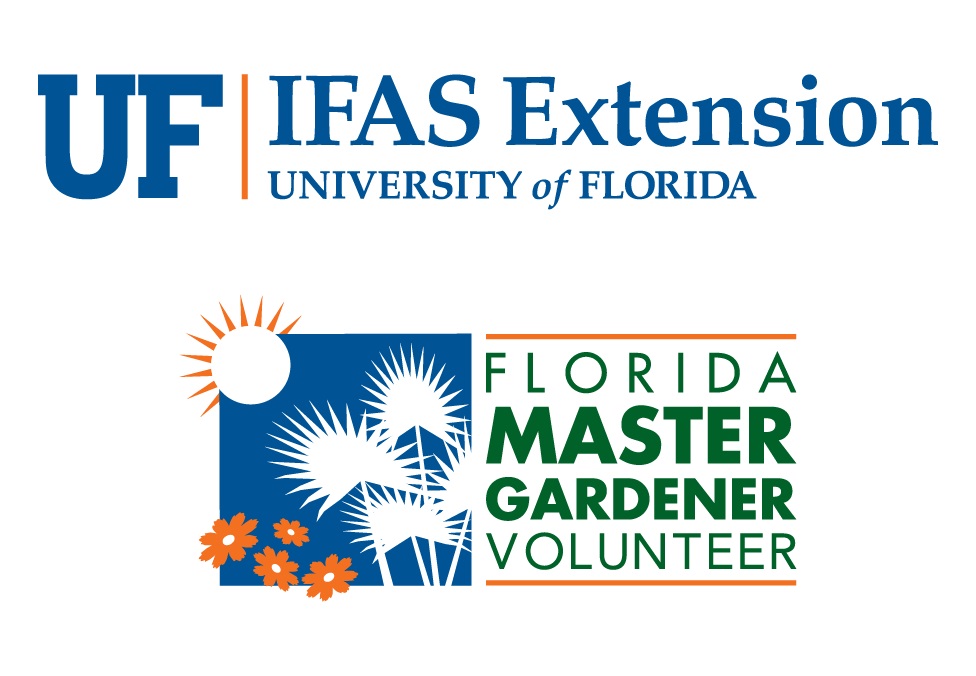

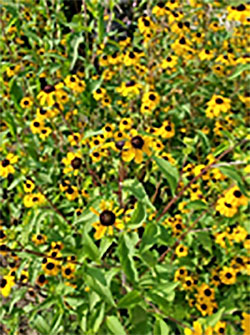
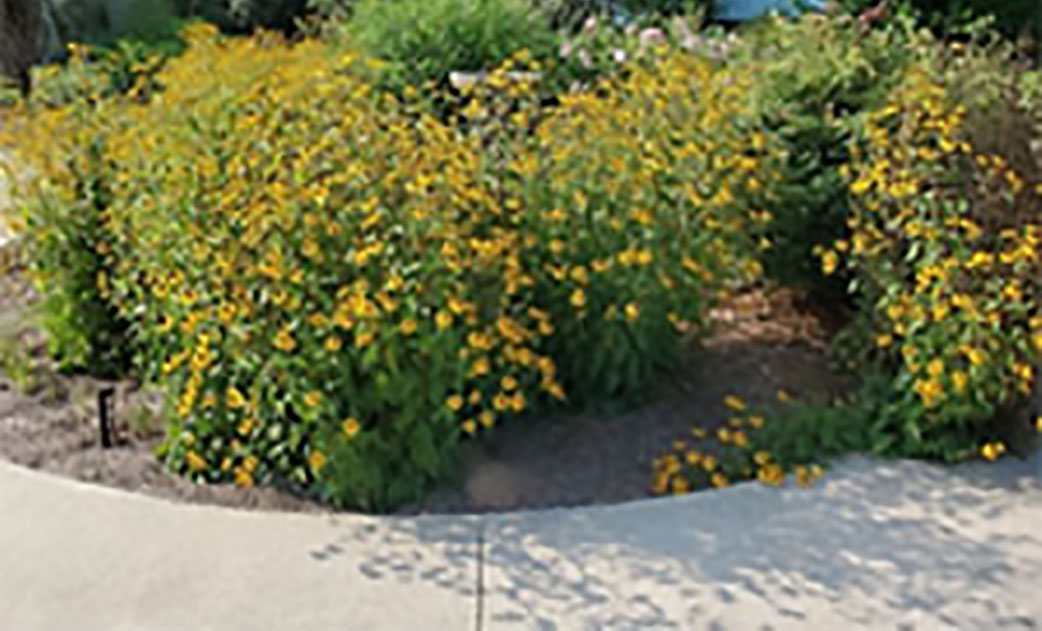 Native, NOT invasive
Native, NOT invasive